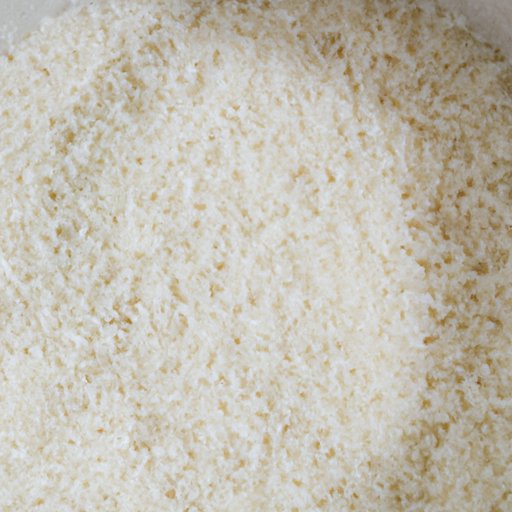
I. Introduction
Rice is a staple food for many cultures worldwide. It is a dietary component that provides essential nutrients such as carbohydrates, vitamins, and minerals. However, there is ongoing controversy surrounding white rice and its potential to lead to weight gain. Understanding the connection between rice consumption and extra pounds is crucial for people who want to maintain a healthy weight.
II. The White Rice Debate: Can Eating This Staple Actually Lead to Weight Gain?
The debate surrounding white rice and weight gain is ongoing. Some studies suggest that regular white rice consumption may increase the risk of weight gain, while others show no significant association. This controversy is important to people’s health since excess weight gain can lead to health problems, including obesity, high blood pressure, type 2 diabetes, and heart disease.
III. The Science Behind Rice and Weight: Understanding the Connection Between White Rice and Extra Pounds
White rice is a refined grain that has gone through a milling process that removes the bran and germ layers. This process removes the fiber and nutrients present in the whole grain. Without the bran and germ layers, white rice is easier to digest and quickly breaks down into glucose in the body, leading to insulin spikes that can promote weight gain. Studies have also shown that people who consume more white rice tend to have higher body mass index (BMI) and waist circumference than those who eat less white rice.
IV. Carbs, Calories, and Weight: How Much White Rice is Too Much?
The nutritional value of white rice and how it relates to weight management is essential to consider. One cup of cooked white rice contains approximately 45 grams of carbohydrates and 200 calories. Consuming too many carbohydrates and calories can lead to weight gain. However, eating small portions of white rice as part of a balanced diet is not likely to cause weight gain. Nutritionists recommend limiting the consumption of refined grains, such as white rice, to two to three servings per day and opting for brown rice or other whole grains that are higher in fiber and nutrients.
V. Exploring Alternatives to White Rice: Healthier Options to Help Maintain a Healthy Weight
Fortunately, there are many healthy alternatives to white rice that people can choose to add variety to their diet and improve their health. Brown rice, quinoa, barley, and millet are all rich in dietary fiber and contain more nutrients than white rice. Cauliflower rice, made by grating cauliflower into small pieces, is also a low-carb, low-calorie alternative to rice. By including these grains and vegetables in the diet, people can ensure they are getting a variety of essential vitamins and minerals, promote weight loss, and maintain blood sugar levels.
VI. Making White Rice Work for You: Balanced Diets and Portion Control for Long-Term Weight Management
White rice can be part of a balanced diet when consumed in moderation. Combining rice with healthy fats such as avocado, beans, and vegetables can improve its nutritional value and prevent insulin spikes that promote weight gain. Additionally, controlling portion sizes is crucial in ensuring that white rice does not contribute to excess calorie intake.
VII. Breaking Up With White Rice: Strategies for Reducing Your Intake for Better Health and Fitness
Reducing white rice consumption may be necessary for some individuals struggling with weight gain or other health issues. Gradually replacing white rice with healthier alternatives or reducing overall carbohydrate intake is one strategy that can promote weight loss. It is essential to note that dietary changes should be gradual to prevent extreme limitations and to allow the body to adjust.
VIII. Eating Mindfully: How to Enjoy White Rice in Moderation and Avoid Its Negative Health Impacts
Mindful eating is an essential approach to avoid overconsumption of white rice and other foods.
Here are some tips for practicing mindful eating:
– Be present when eating, focusing on the food and enjoying each bite.
– Pay attention to your hunger and fullness cues.
– Eat slowly and avoid distractions such as television or phones.
By following these tips, people can enjoy white rice in moderation without compromising health goals.
IX. Conclusion
White rice is a staple food in many cultures, and it has both positive and negative associations with weight management. Understanding its effects on the body and exploring healthier alternatives can help people maintain a healthy weight and prevent chronic diseases. Incorporating rice mindfully into a balanced diet and controlling portions can also help optimize its nutritional value. By taking a mindful approach to diet and lifestyle choices, individuals can make informed decisions about white rice consumption and maintain a healthy weight and a balanced life.





